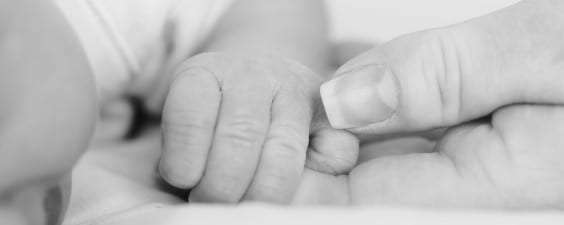15 Mar Can Postnatal Depression be Treated? Discover How Today!

Can Postnatal Depression be Treated?
Discover how today!
There are a lot of misconceptions out there regarding how to treat Postnatal Depression (PND). Unfortunately this results in women and family members not only being confused, but in some instances also reluctant and frightened. As you can imagine, this in turn unfortunately resulting in some women not seeking help. So, I want to shed some light on best practice when it comes to treating postnatal depression. By reading this blog you will have some understanding of the things we look at when treating Postnatal Depression. This in turn will empower you in knowing best practice approaches.
Postnatal depression is complex as there’s a number of contributing factors leading to this diagnosis. So, when treating Post Natal Depression, it is important to address the biological, psychological and social factors contributing to the woman’s postnatal depression experience.
We know when women experiencing Postnatal Depression are not provided with the right treatment, they disengage from treatment and blame themselves for their depression not improving. This unfortunately results in not seeking further treatment and their depression exacerbating.
So, what are some of the things we look at when treating women with postnatal depression?
1. Probably one of the most essential ones at the beginning of the treatment is providing women with factual information. Making sense of their own contributing factors can normalize their postnatal depression experience. At Vida Psychology we find when this happens women stop blaming themselves and feeling ashamed as they realize there are real factors causing their depression. This empowers them in understanding what they can put in place to assist their recovery.
2. Providing women with information regarding postnatal depression symptoms including anxiety symptoms is also important. This information enables women understand the impact their postnatal depression is having in their life. By making sense of these, women become aware on what activities they can engage with to help themselves.
3. At Vida Psychology we ensure women become fully aware of not only their contributing factors resulting in the development of their Postnatal depression, but also the importance of self care and how pivotal this is in their recovery.
We find Self-care/nurturing activities are helpful in beginning to shift how women see their roles as mothers and themselves as women. Some examples of self care are things such as: discussing with their partner the allocation of ‘me time’, slowing down, getting a massage, manicure, facial, catching up with friends, going to the movies, gardening, going for a walk, exercise, having a bath, having long showers, watching TV, listening to music, meditation, and the list goes on. Understanding what women used to enjoy doing prior to having babies and encouraging them to reconnect with those activities is very helpful.
4. It is also important to understand how women view themselves including their own expectations about motherhood. At Vida Psychology we look out for myths of motherhood and discuss them with women. We teach women how to recognize, challenge and most importantly replace their unrealistic expectations.
5. We also assist women in developing practical strategies. Often women struggle with the day-to-day activities and feel quite overwhelmed. Learning to develop practical activities helps ensuring tasks set are realistic and thus minimizing stress. By setting achievable tasks, women begin to gain more and more confidence in themselves. Some of the practical strategies we look at are things such designing timetables to structure daily/ regular activities.
6. We also look at decreasing alcohol intake if relevant, the importance of good nutrition and rest, dealing with indecisiveness, increasing social, family and community support.
7. Supports are important in a women’s recovery. So, identifying a woman’s supports is critical– especially their partner’s involvement. At Vida Psychology we know the importance of involving the woman’s partner in the treatment process. Inviting them to attend a session can be extremely helpful to get a sense of what their own experiences are as well as assessing insight of their partner’s condition. Providing essential and factual information to partners is extremely helpful in increasing understanding of their partner’s Postnatal depression experience as well as identifying what they can do to support them in their recovery. Psycho-education to both is also very important to normalize their experiences and recognize the effect of postnatal depression on their relationship. Some of the common negative impacts on relationships can be disconnect from one another, lack of sexual intimacy and decrease of women’s libido. Making sense of a woman’s experience and detachment from her partner is essential. Discussion on what couples can commit to changing tends to give them something tangible to work on and a sense of hope.
8. Teaching women develop a healthy self esteem is another aspect we address at Vida Psychology. A lot of women tend to put themselves down. Teaching them to identify positive qualities, helpful behaviours they can engage in as well as positive experiences to look out for assists women in re-building their self-esteem.
9. Our Vida Psychologists look at Assertion training to help women address their depression. Here we explore what gets in the way of women asserting themselves so they can begin to communicate assertively and confidently.
At Vida Psychology we have helped hundreds of women address postnatal depression. With the help of one of our Vida Psychologists you will learn the causes of your Postnatal Depression and what you can begin to do to address it. This will allow you to not only enjoy motherhood and make the most of it, but also ensure your relationships don’t suffer.
If you or you think a loved one can relate to this, call us on 9328 8200 to make an appointment with one of our Psychologist one of Psychologist.
By seeking our help you will learn about your postnatal depression causes and how you can begin to beat it. Feeling like your old self, enjoying motherhood and your relationships don’t have to be compromised by having a baby.


Sorry, the comment form is closed at this time.